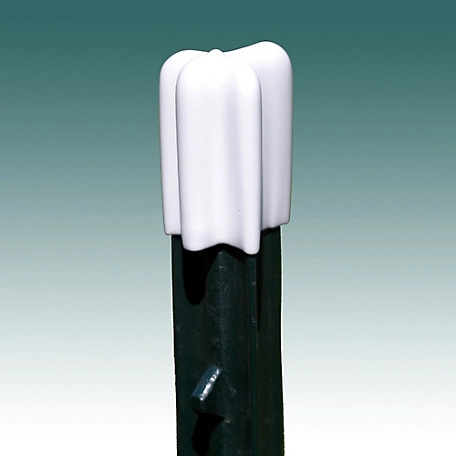I have two strands of wide tape for internal cross-fencing, and I really like the way it looks, nice and clean. It does take some maintenance occasionally, but once a horse touches it, they never mess with it again. I don’t think I would feel comfortable with it as a perimeter fence, but my property closely borders a road along one side, and there isn’t much of a right-a-way between the fence and the road. Plus, it would never keep my neighbor’s goats out!
Thus, my perimeter fence is welded wire, with a strand of smooth wire at the top. I see this type of fence everywhere in this part of Texas. I wanted that to keep my dogs in and other critters out, and it’s worked well for that purpose, thankfully. The wire is mounted on T-Posts, which I loathe but at the time was what I could afford. I do have these covers on each t-post:

which make me feel a little better about them, and I do a perimeter walk daily to check the fence and make sure the caps are still there, the fence is secure, no trees or heavy limbs fell on it overnight, etc. The caps have stayed on really well though, and are actually hard to get off. The main problem I have is when the welded wire gets damaged, it can be tricky to repair - lots of stretching and patching to get it back tight again.
I have also started adding fence stays to each span of welded wire, as it has gotten stretched over the years. Between winds, floods, deer and such it’s not nearly as tight as it was first installed. But putting a couple of fence stays in each span really helps it stay more stable - or firm, or rigid - you know what I mean!
I also have an interior fence that separates pasture and barnyard from the house, and that is all cedar posts and rails. It’s a beautiful fence, but it probably takes the most maintenance, and attaching a round post to a round post (they’re all straight off the trees) is not an easy task. One day I would love to have it all replaced, but good lord the cost!. So for now we just keep making all of it last. Just this week the high winds caused a dead tree on the other side of the perimeter fence to break off at the top and - you guessed it - it landed on the fence. So repairs will be in order this weekend.



